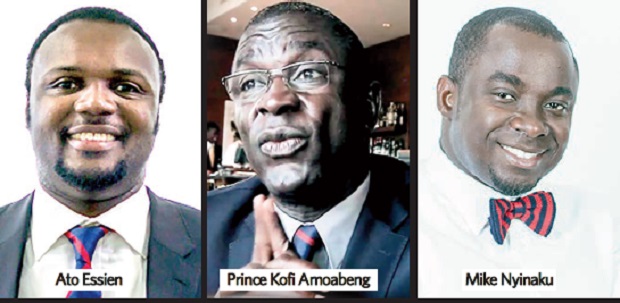The Bank of Ghana (BoG) has stated that documents on the seven failed banks have been handed over to the Economic and Organized Crime Office (EOCO) for detailed interrogations and possible prosecution of directors and other officials of the defunct indigenous banks.
The Second Deputy Governor of BoG, Elsie Addo Awadzi, made this known at the Joy Business Financial Sector Forum, which was held last Thursday in Accra under the theme: “The Changing Tide of Ghana’s Financial Services Sector: The Cause, the Cost and the Clean-up.â€
Speaking on how the cost of the clean-up exercise of the banking sector would be recovered, Madam Addo Awadzi disclosed that “dossiers on all seven banks have been handed over to EOCO for investigation and possible prosecutions by relevant state agencies.â€
The defunct banks are uniBank, Capital Bank, UT Bank, Construction Bank, Royal Bank, Sovereign Bank and Beige Bank.
The licences of the banks were revoked by the Central Bank due to their insolvency.
Beige Bank, Royal Bank, uniBank, Construction Bank and Sovereign Bank were merged and became the Consolidated Bank Ghana (CBG) in August 2018 about a year after Capital Bank and UT Bank were taken over by the Ghana Commercial Bank (GCB) on the directive of Bank of Ghana (BoG).
Madam Addo Awadzi said EOCO has finally taken over investigations into alleged crimes that took place in those defunct banks, notably insider trading by some of the directors and officials of the said banks.
According to her, “BoG’s own internal investigations into the conduct of Bank of Ghana officials have also begun with the establishment of the Office of Ethics and Internal Investigations.
“Current and former officials of the Central Bank, who might be found culpable, will neither be spared nor shielded by management,†she added.
The Deputy Governor stated that “it’s important that the costs of these interventions which were borne by taxpayers are recovered possibly through recoveries from debtors, shareholders, relevant and connected parties who took money from the defunct banks.
She added that the Receivers are making strides in their recovery efforts, adding that “Over GH¢400 million has so far been recovered by the Receivers of the two banks which were taken over last year.
“The BoG’s recent actions were necessary to ensure that banks that failed were made to exit the market in an orderly fashion and without disruptions to our financial system.â€
“Failed banks become serious sources of risk for the entire financial system and the economy as a whole, and must be made to exit before they collapse the whole system. The defunct banks had reached a point where they were no longer able to operate as banks.â€
The Deputy Governor further indicated that despite the collapse of the seven banks, “the banking sector is generally strong and continues to be profitable, judging from a number of key indicators.â€
She added that “BoG is committed to ensuring that banks and other financial institutions remain safe and sound and engage in practices that protect the deposits of their clients, as well as ensure that the financial system is safe and stable for all users.â€
Read also:EOCO ordered by the court to release Afaglo's passport
Ghana News: Latest news in GhanaÂ





